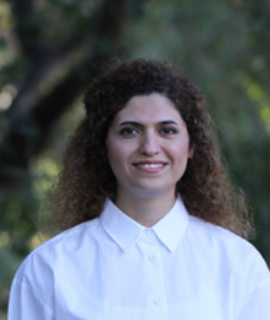Title : From Acetic Acid Production by Bacteria to Hydrogen Production in Chlamydomonas reinhardtii
Abstract:
Due to the critical level of CO2 contamination in the environment, limited resources of fossil fuels and increasing demand of energy in the world, attention is being paid to clean and sustainable alternatives for sources of energy. Hydrogen is a potential non-carbon-based energy carrier with high energy content per mass (120 MJ/kg). Green algae can produce H2 under certain conditions in presence of light, however this clean and renewable method for H2 generation is still far from commercialization due to the low yield and rate of the process. One of the main bottlenecks is that hydrogenases, the enzymes in charge of H2 production are strongly inhibited by oxygen (O2) which is inevitably produced during photosynthesis. Chlamydomonas reinhardtii (Chlamydomonas) is a unicellular green microalga that has been widely studied for photobiological H2 production, due to its rapid growth, known genetics and high hydrogenase activity. Recently, algae-bacteria consortia have attracted attention in the area of bio-H2 production. O2 respiration by bacteria can facilitate the hypoxic condition required for the hydrogenases to produce H2 and improves algal H2 production in algae-bacteria consortia, especially when the cultures are provided with acetate. In this study we investigated the influence of acetic acid on algal H2 production in Chlamydomonas-bacteria co-cultures.
Audience Takeaway:
- Bottlenecks ahead of photobiological hydrogen production to be commercialized as a clean and renewable source of energy.
- Algae-bacteria consortia can be a promising biological system for bio-hydrogen production.
- How waste bioremediation can be integrated to bio-hydrogen production.




